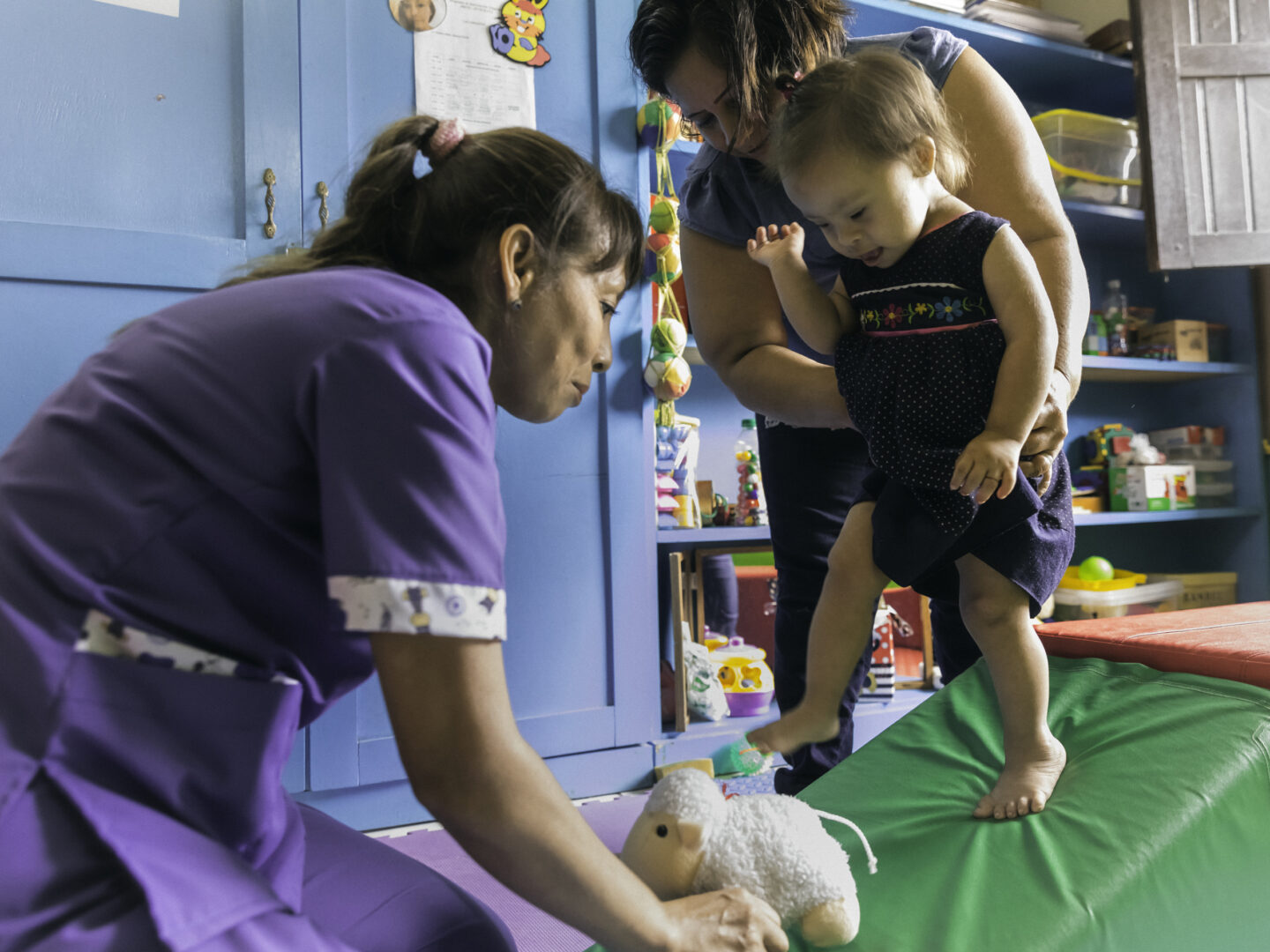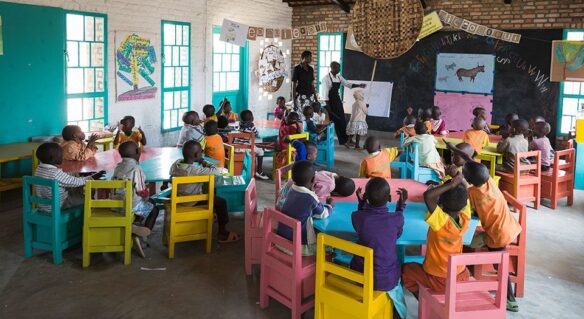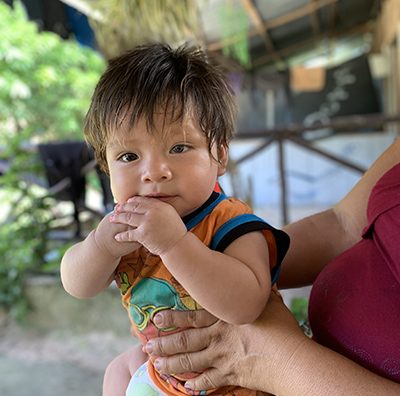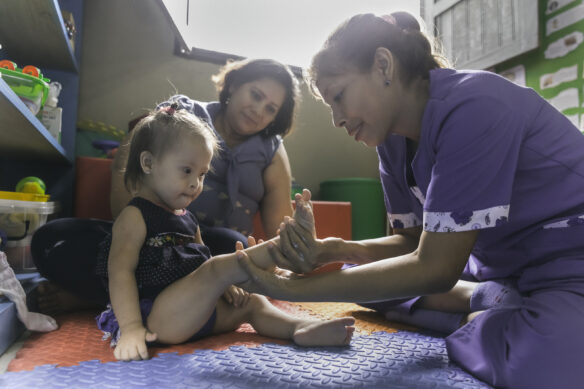Within this project, H&M Foundation and UNICEF support young children, in particular those with disabilities. The initiative aims to scale up existing UNICEF early childhood development programs in Bulgaria, Peru and Uganda to make them more accessible and tailored to the needs of children with disabilities and their families.
The support provided to UNICEF’s early childhood development programmes through the partnership will help better assess babies and young children for disabilities and developmental delays, improving their chance of receiving specialised early childhood development care at the earliest opportunity. Creating a more inclusive support system aims to reduce discrimination that young children with disabilities may face.
Giving young children with disabilities the best chance of reaching their optimal development also helps considerably reduce the costs of special education, unemployment and institutionalization.
Emphasis is also put on communication. UNICEF aims to produce communication assets with the objective to contribute to combating stigma and discrimination towards children with disabilities and their families.
Key Performance Indicators for the coming three years are:
- To adapt and implement a tiered service delivery model of care and support for children with disabilities in the pilot sites. Community-based and family-centered support is provided for those with delays and risks, and more intensive and specific early interventions are provided to those that need them.
- Evaluation of the service delivery model on early identification and early interventions for children with disabilities in two sites in each of the three countries. The evaluation will involve a cohort of at least 1,000 children in each site or a total of at least 6,000 children followed for a period of 1-1.5 years. This will be followed up for child, family, and community level outcomes.
- Contribute to the global knowledge on early interventions for children with disabilities by publishing the evaluation in a scientific journal. It will cover the three countries of the service delivery model on early identification and early interventions for children with disabilities.



